Thoughts turning, wheels rolling: Hory Chikez and students design and build mobile assembly lab
Author: Sarah Hays
Author: Sarah Hays
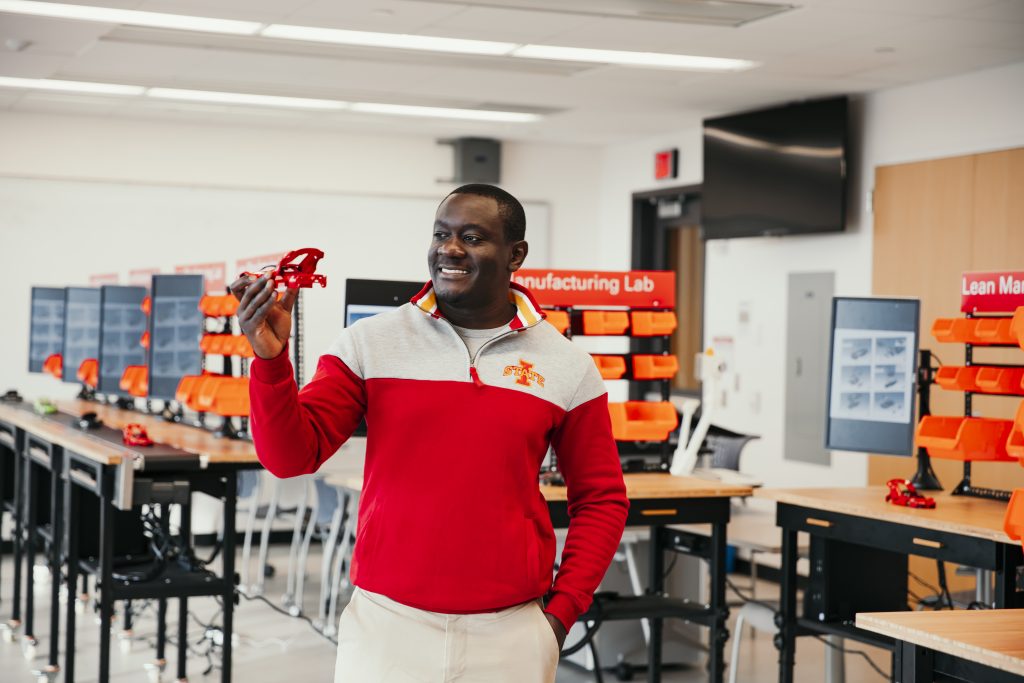
Ping! was the sound of Hory Chikez’s thoughts when the spark of an idea was ignited one September afternoon.
Chikez didn’t know it then, but after that day, him and students in TSM 415 and TSM 440 would begin a project that would end up consuming what felt like every hour of every day for the next few months. And for the team, every hour, minute and second was worth it.
At a conference all about manufacturing processes, Chikez, a graduate student in the Department of Agricultural and Biosystems Engineering, saw a poster about LEAN (a type of manufacturing process) concepts applied within a laboratory setup.
Inspired, Chikez took his new idea and got to work. His idea? Chikez and students in TSM 415 and TSM 440 were going to create an assembly lab – and give students the unique opportunity to experience the industry realm in class. And even better – not only was he going to create an assembly lab, but he was going to make it mobile – able to be transported anywhere, at any time.
Hory linked his TSM 440 Lean Manufacturing course with students in a concurrent TSM 415 Applied Project Management course to design and build the lab as a project management case study.
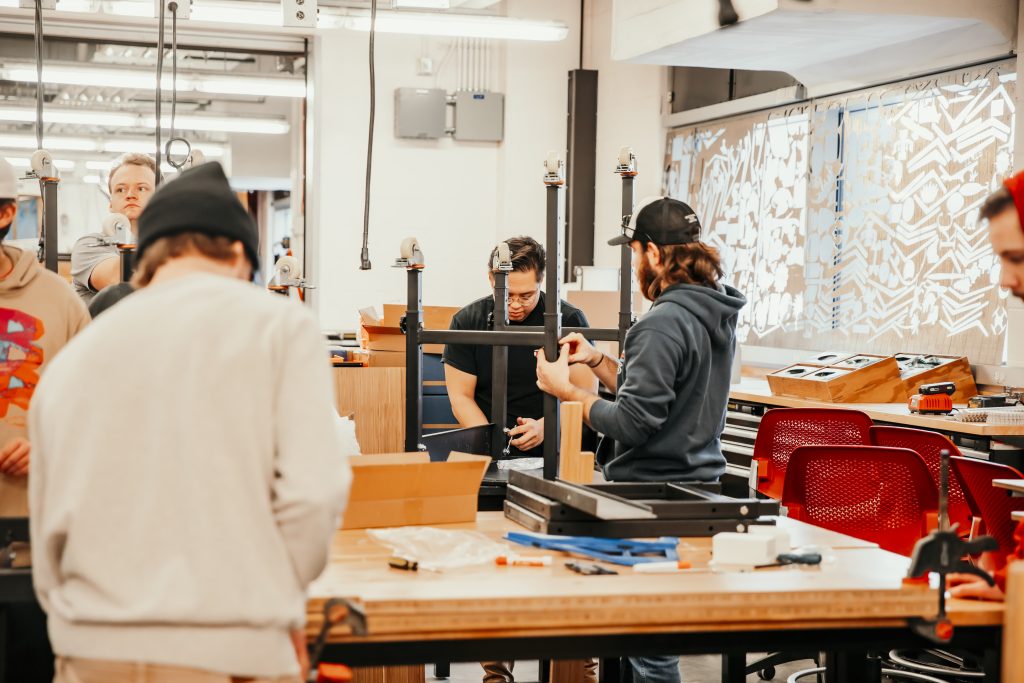

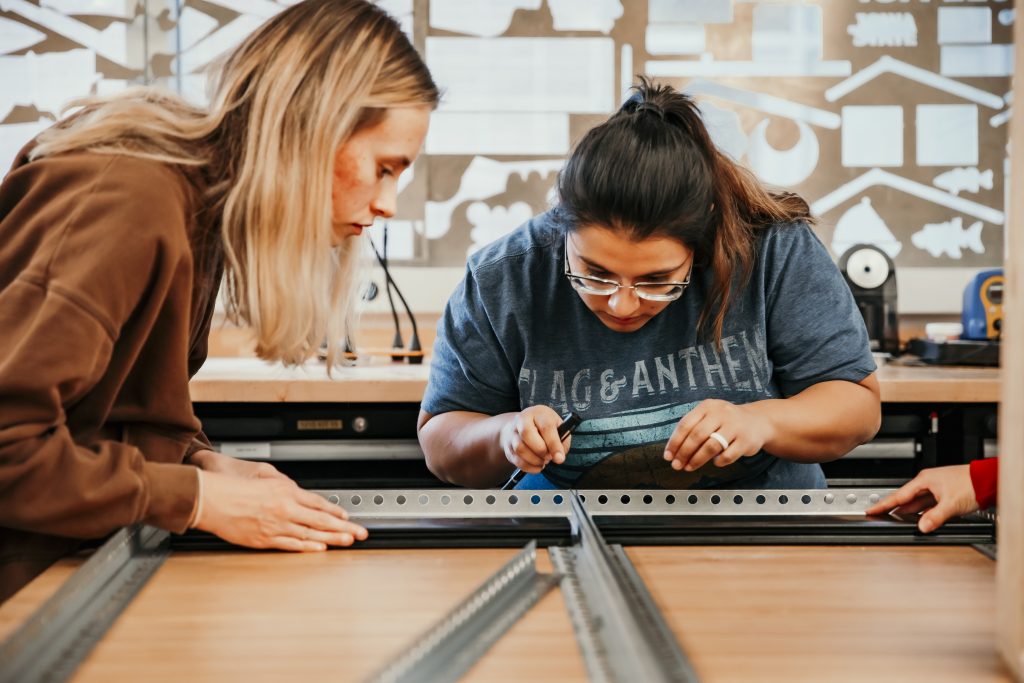


Chikez’s position in ABE is a unique combination – while he is a Ph.D. student in the department, he also teaches a class on LEAN manufacturing, a set of manufacturing principles that focuses on minimizing waste while maximizing productivity at the same time. These characteristics were a perfect blend for what was to come.
His lab would have two different setups – one side comprising a traditional moving assembly line, equipped with a conveyor belt, typically used for mass production. The other side would consist of several assembly cell formations to exemplify LEAN manufacturing concepts and to learn about the advantages of using them.
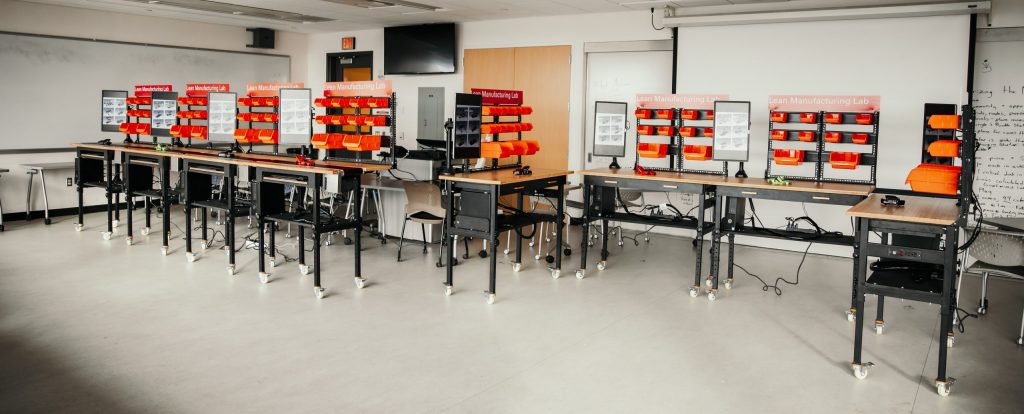
Day by day, hour by hour, Chikez came closer and closer to his finished design. His goal was to finish it by the start of next semester – and just in time, his goal was achieved one week before the start of the spring semester, taking a total of four months from start to finish.
“It was a huge undertaking to bring this idea to life,” Chikez said. “But I had my goal and knew how important it would be for my students, and how much they would learn. Having said that, none of this would have been possible without the unwavering support from the ABE department, the unlimited access to the SUKUP Student Concept LAB and its resources for building the various units, and the involvement of our brilliant technology students in the design, building and completion of the assembly lab.”
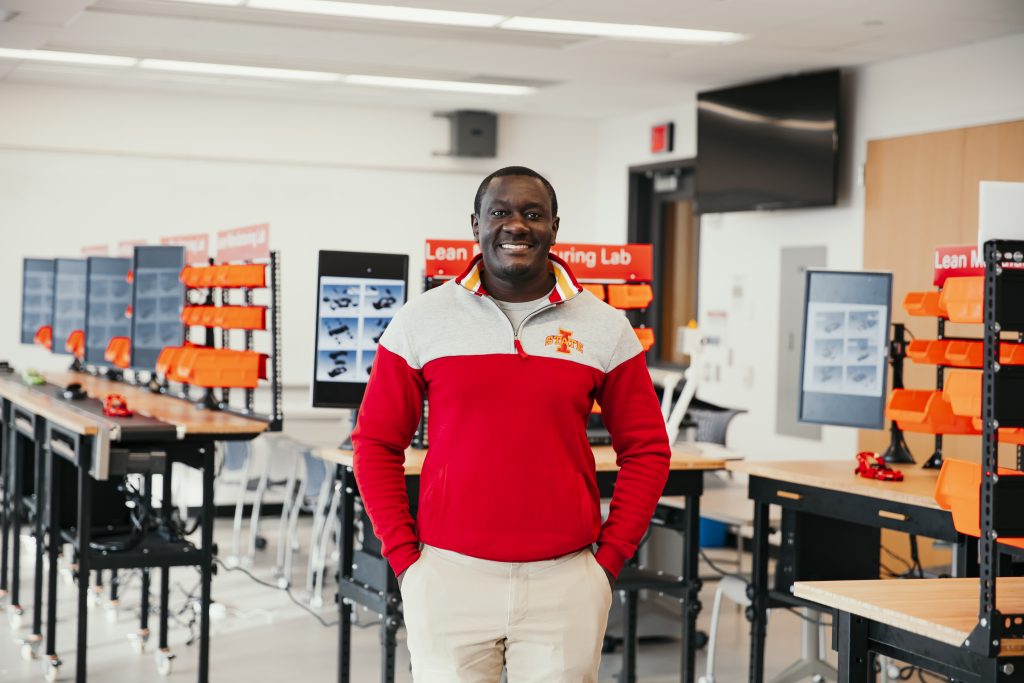
Fulfilling his promise, the mobile lab is complete and ready to go, rolled into his classroom in Sukup Hall. When classes start, his students will form groups and use the two different types of systems to assemble model vehicle parts into complete model vehicle units. Students will then gain real-world, hands-on experience in applying concepts they are learning in class such as Just-In-Time (JIT) production, Value Stream Mapping, Single Minute Exchange of Die (SMED), Kaizen, 5s, Total Productive Maintenance, Standardized Work and Takt Time.
“This will also open up new idea pathways for students – designing and manufacturing jigs and fixtures, or implementing automation for process improvement purposes, etc.,” Chikez said.
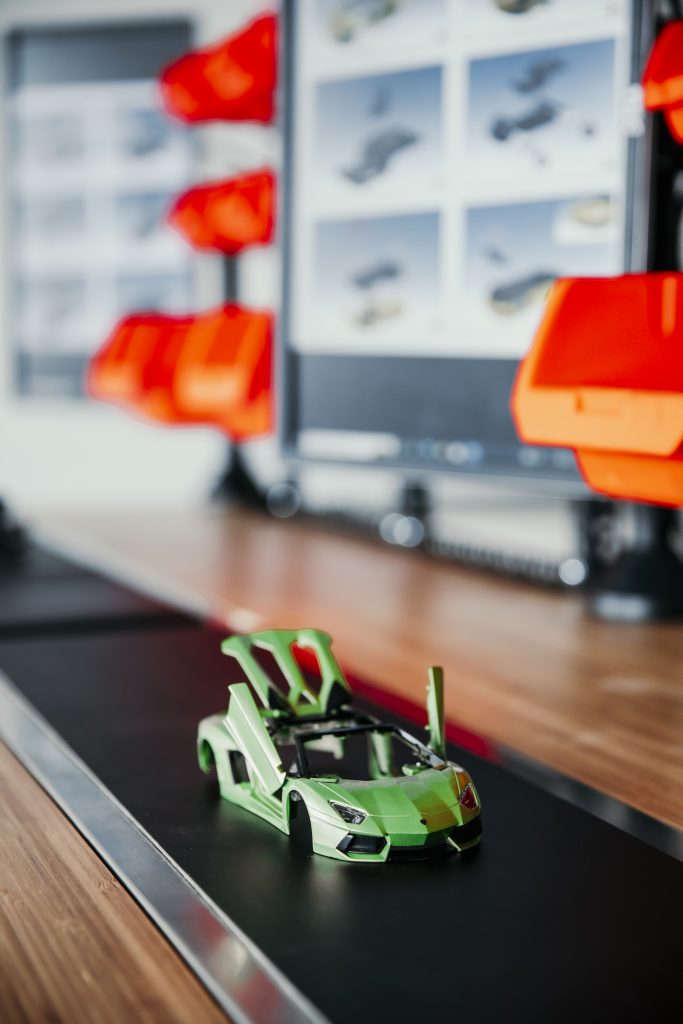

“At the core, this is about showing students how they can identify and remove non-value-added activities from assembly processes, and maximize value for the customer,” Chikez said. “And how do you do that? You have to compare and experience different assembly systems.”